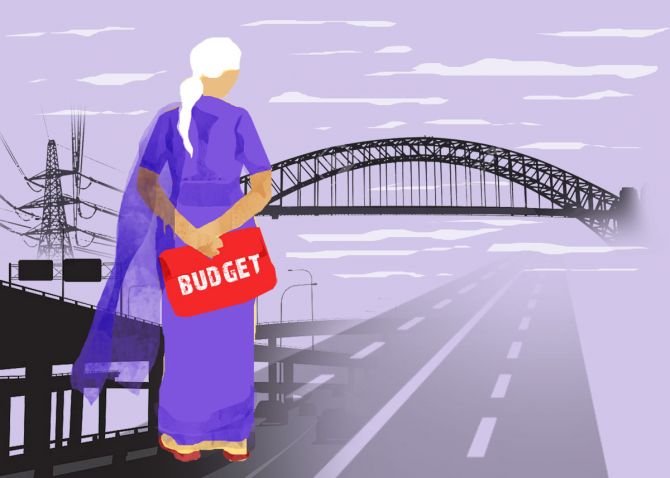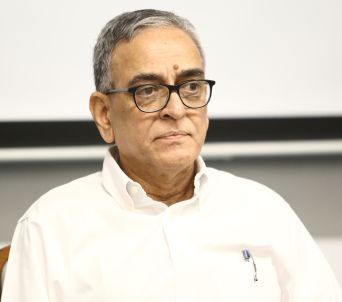'After 2011-2012, both our investment rate and savings savings rate have declined.
'Correspondingly, the savings rate in the economy as percentage of GDP, also has come down.'

The ruling party says Budget 2023 will trigger growth, address unemployment and zoom India to Amrut Kaal.
But many economists do not agree with the rosy picture painted by the finance minister.
One such economist is Professor R Nagaraj, professor at the Indira Gandhi Institute of Development Research, Mumbai.
"In the last decade, the fixed investment rate as percentage of GDP has declined. Never in the last 70 years have we seen this kind of decline in the rate," Professor Nagaraj tells Rediff.com's Shobha Warrier. The first of a two-part interview:
Many industrialists, the market and even some pundits are impressed with the 2023 Budget. Are you?
On the face of it, the numbers look very good like the 33% increase in the investment budget.
The question is, what does it really mean? We have been seeing similar numbers in the last 2-3 years, but we still do not know how much difference it has made on the ground.
Secondly, these are fiscal numbers. When you say budgetary investment, it is not the same as investment resulting in capital formation.
As economists, we bother about capital formation which is in addition to the fixed capital that augments output.
For example, if the government invests in recapitalising banks, that will go as investment in budgetary numbers.
But that doesn't add to capital formation. It is only transfer of money from the government to the bank.
But this time, the finance minister was talking about a capex of Rs 7.5 lakh crore in infrastructure...
Yes, but these are similar to the numbers we have been hearing earlier too.
On paper, the fixed capital formation as a percentage of GDP has not gone up. It is still lower than what it was during 2013-2014, and certainly lower than what it was in 2011-2012.
In fact, in the last decade, the fixed investment rate as percentage of GDP has declined.
Never in the last 70 years have we seen this kind of decline in the rate.
This is something people do not talk about because they only look at the more recent numbers.
But I have looked at the data from the last 7 decades and found that there has been a decline in the investment rate in the 2010s.
That is, India's annual GDP growth rate dipped to 5%-6% from 7-8% in the 2000s.
In 2000-2010, our investment rate picked up by 10 percentage points in 7 years, and that was what gave India 7-8 growth during that period.
After 2011-2012, both our investment rate and savings savings rate have declined, and it continued till the end of the decade.
Correspondingly, the savings rate in the economy as percentage of GDP, also has come down.
We have not witnessed this kind of a decline in the last 7 decades.
Is it not because the private sector lost confidence in the economy that investment rate has declined?
Whatever be the reason, the fact is, overall investment rate declined.
There could have been measures to overcome this by increasing public investment rate like China did.
After the 2008 financial crisis, China faced a far bigger crisis than India did because it was a much more export-oriented economy.
But they overcame the crisis by huge public investment.
Also, investment in R&D. This helped them become what they are today.
On the other hand, India did not do it. Therefore, our investment rates have fallen. Also, our investment rates in R&D have fallen as percentage of GDP.

You spoke of the savings rate going down. Is it because consumption increased and the attitude of people changed from saving money to spending?
No. It is basically because our GDP growth has come down.
You mean, there was less money in the hands of people?
Exactly. The fact is, savings rate declined.
There is also great gung-ho about FDI. But as percentage of GDP, it has never crossed what it was during 2007-2008; before the financial crisis.
You have to look at the net FDI, as lots of FDI these days is private equity which leaves the country after 3-5 years.
So, if you look at net FDI to the GDP, it has remained between 1%-2%.
Feature Presentation: Aslam Hunani/Rediff.com












 © 2025
© 2025